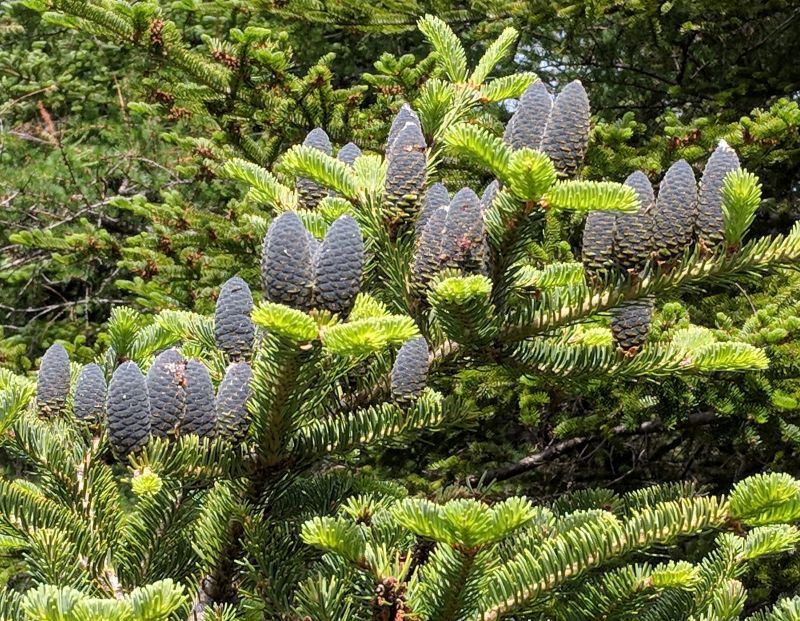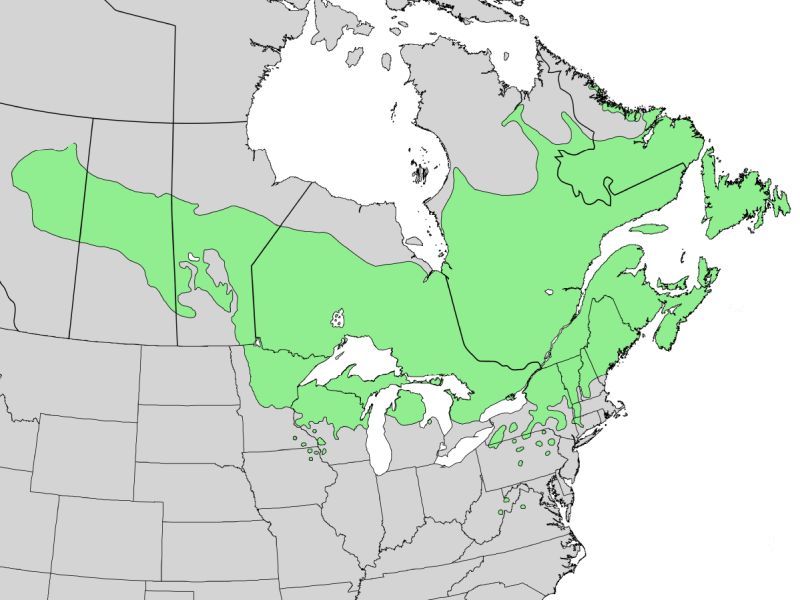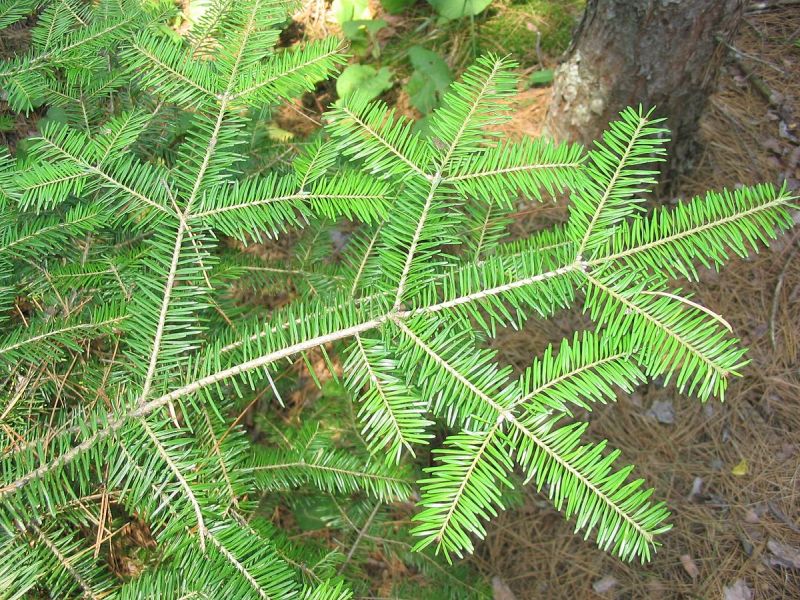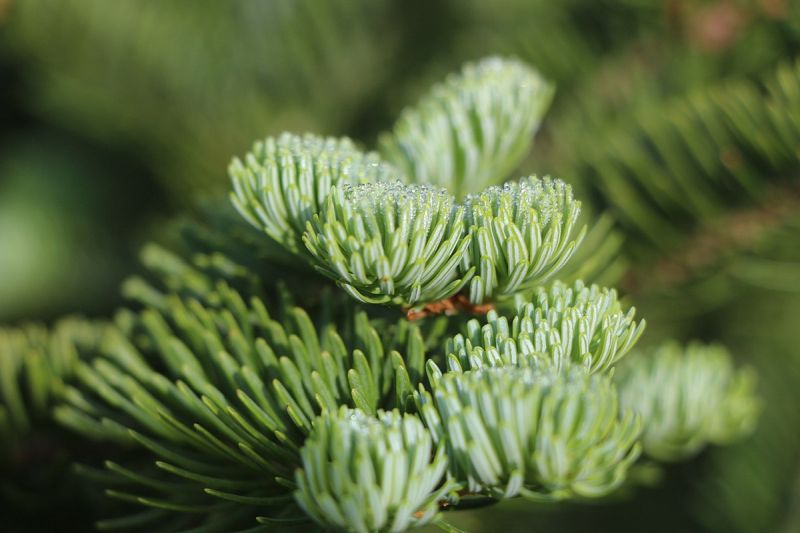
Did you know that the immature cones on balsam firs are gray-blue? I didn’t because …
I see balsam trees every year in Maine but I’m only there in September when the cones are ripe and brown and about to disintegrate to release their seeds.
Where I live in western Pennsylvania there are no balsam firs (range map below) but eastern hemlocks are common. Hemlocks have some traits that are similar to balsam firs, so …

… when I saw balsam firs (Abies balsamea) in Newfoundland I misidentified them at first.
The balsam’s lower/newer twigs have flat needles on flat-looking branches. Eastern hemlocks do, too, so I called this a hemlock. (wrong!)

Balsam needles have two white stripes on the underside. So do eastern hemlocks so I said “hemlock” again. (wrong!)
However, the needles curled on the higher branches. Hemlock needles never do that.

In the end, the cones are the easiest way to identify balsam firs. The cones stand straight up and in summer they’re balsam blue.
p.s. Here’s a website that describes how to identify pines, spruces, and firs: Conifer Confusion: An Identification Guide for Pine, Spruce and Fir Trees. I wish it said more about hemlocks!
(balsam cone photo by Kate St. John. All other photos from Wikimedia Commons; click on the images to see the originals)
